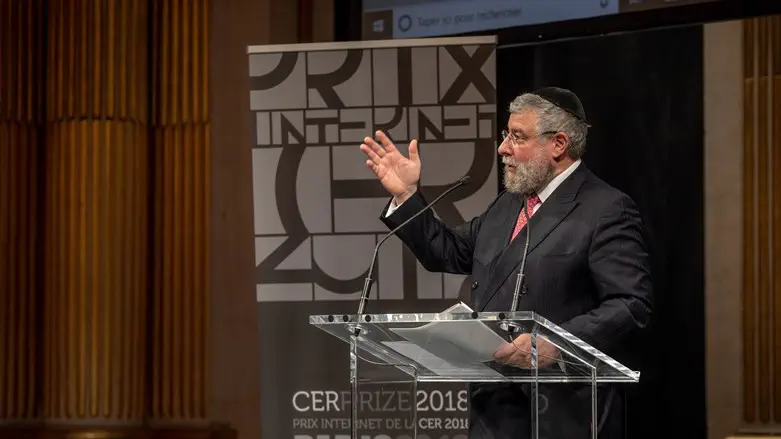
Rabbi Pinchas Goldschmidt was the Chief Rabbi of Moscow, Russia and served as president of the Conference of European Rabbis (CER), which unites over seven hundred communal rabbis from Dublin, Ireland to Khabarovsk, in the Russian Far East.
“Off the derech” (translated as “off the path”) is one of the worst nightmares of religiously committed Jewish parents. “OTDs,” also known as “datlashes” – a Hebrew term for “formerly religious” - are kids who were raised within the strictures of Jewish life, celebrating holidays, keeping Shabbat, and even attending top-flight yeshivas and day schools, and then rejected some, or even all of it.
For many religious parents, the reality of an OTD child, regardless of age, poses numerous dilemmas. How do we relate to him or her? What if they drive to our house on Friday night? Won’t they influence the other children? Does accepting them mean we are accepting their rejection of our values?
These are indeed serious questions – but this week’s parsha, Re’eh, helps us gain some perspective on these dilemmas. In the portion’s opening passages, Moses tells the Jewish people that, depending on the path they choose, they will either gain a blessing, or face a curse (Deutoronomy 11:27-28). The blessing? “That you will heed the commandments of the Lord your God, which I command you today.” And the curse? “If you will not heed the commandments of the Lord your God, but turn away from the way I command you.”
Usually, we would expect the blessing – or curse – to include some positive or negative result for keeping or violating the commandments. But here Moses tells us that the “reward” for keeping the mitzvot is – keeping more mitzvot; as our sages say, “the reward of one Mitzvah is another Mitzvah.” The curse,meanwhile, will be a further non-adherence to G-d’s word.
The message here is a very important one for all Jews – and perhaps especially for those heartbroken parents who see all their efforts to educate their kids Jewishly seemingly evaporate before their eyes. Moses is telling us that performing the commandments – or violating them – is not an open-and-shut issue. Torah observance is a journey; we grow as Jews when we observe the commandments, and move away from Judaism if we fail to do so. “In the way a person wishes to go, so they are led” (Makkot 10B) is an important principle in Judaism.
We make our own religious reality, and observing the commandments gives us the fuel to move ahead in that journey – while failing to do so will just ensure that our religious “engine” will sputter, and perhaps eventually die.
Just because we, or our children, are observant today does not mean that the situation will prevail forever. And neither does a situation where kids are OTD need to last forever, either; there is always a path back. We need G-d’s blessing to continue to ensure that we and our children remain on the right path – and we need His mercy to bring us back from the curse of ongoing alienation from Him.
And this is the message for parents of “datlash” children: Encourage your kids to do whatever mitzvot you can, keep them within the folds of the family and the Jewish people, accept them but encourage them to “come home” to the faith of their parents. They, too, are on a journey - and it’s our responsibility to guide them back to the right path.
What’s true for individuals and families is true for nations as well. Observing the “commandments” that apply to a nation, as elaborated upon in next week's Torah portion. There, the Torah sets limits to power: A regent who is answerable to the law; appointing judges who are not corrupt; the prophet who is obligated to convey the message he received from G-d, to be punished as a false prophet if his prophecy does not come to pass, the Priest (Cohen) and the Levite, who conduct the service in the temple, dependent on the goodwill and gifts they receive from the people of Israel.
All these elites of Jewish society and the centers of power in the Jewish nation are subject to clear guidelines, limiting their power and preventing abuse of the excess of power. A nation that travels on a trajectory away from the values and rules given to us is on a journey to destruction and oblivion.
By acting properly ourselves – by being honest with our neighbors, in business, and indeed within our families – we can help bring others back to the right national path. As Moses tells us, the choice – for ourselves, our families, and our society – is in our own hand.
Let us hope that all those who face an OTD dilemma – whether it is in their family, their city, or their nation – can use the Torah’s advice to move ahead on the right path.